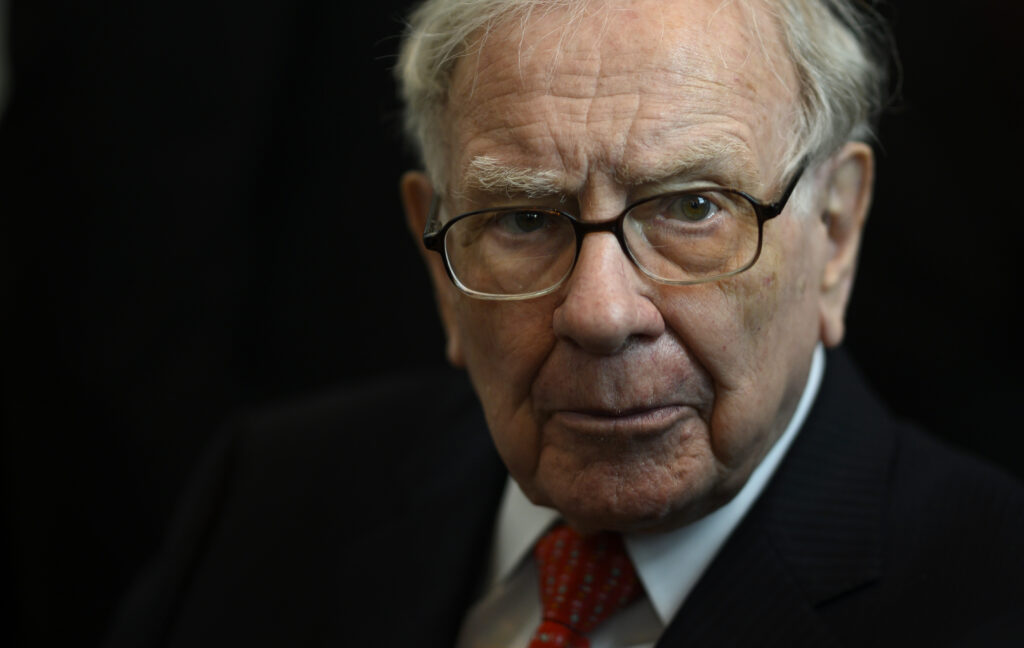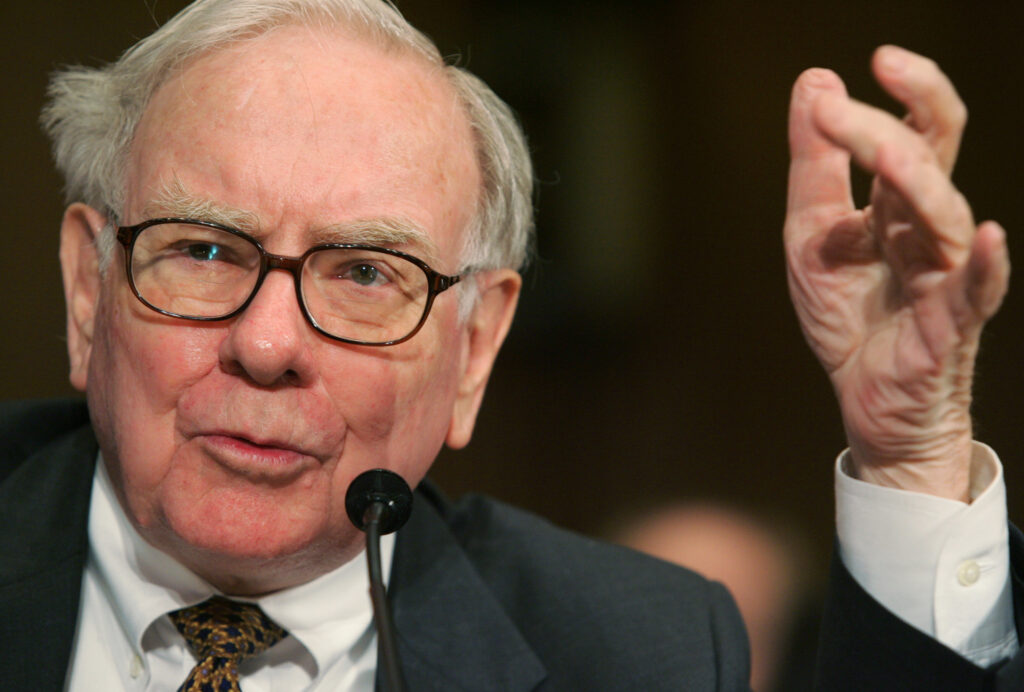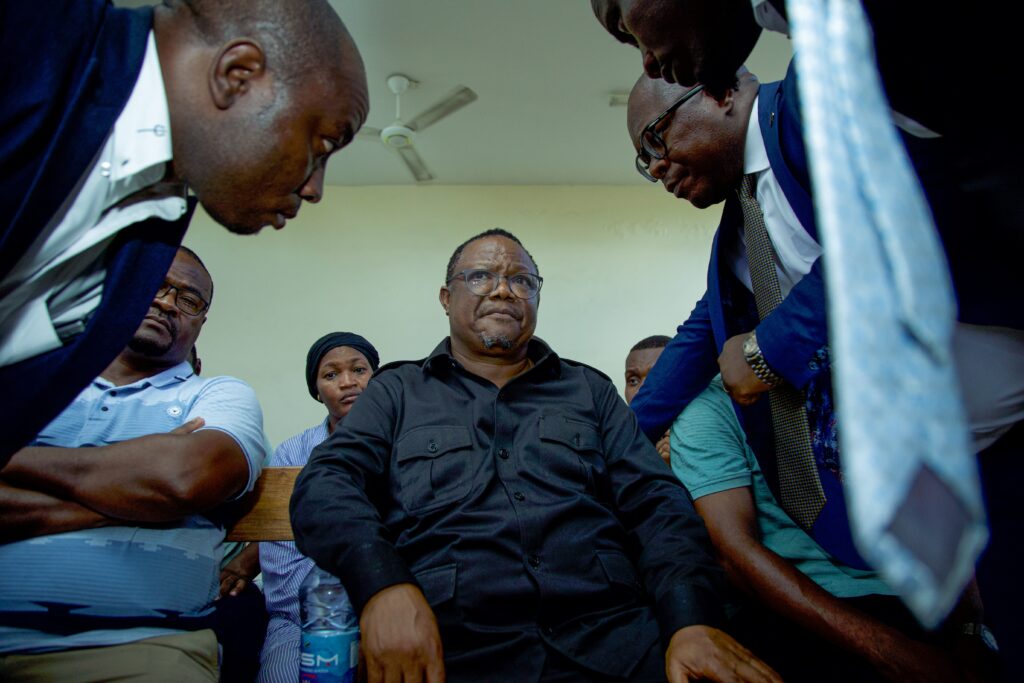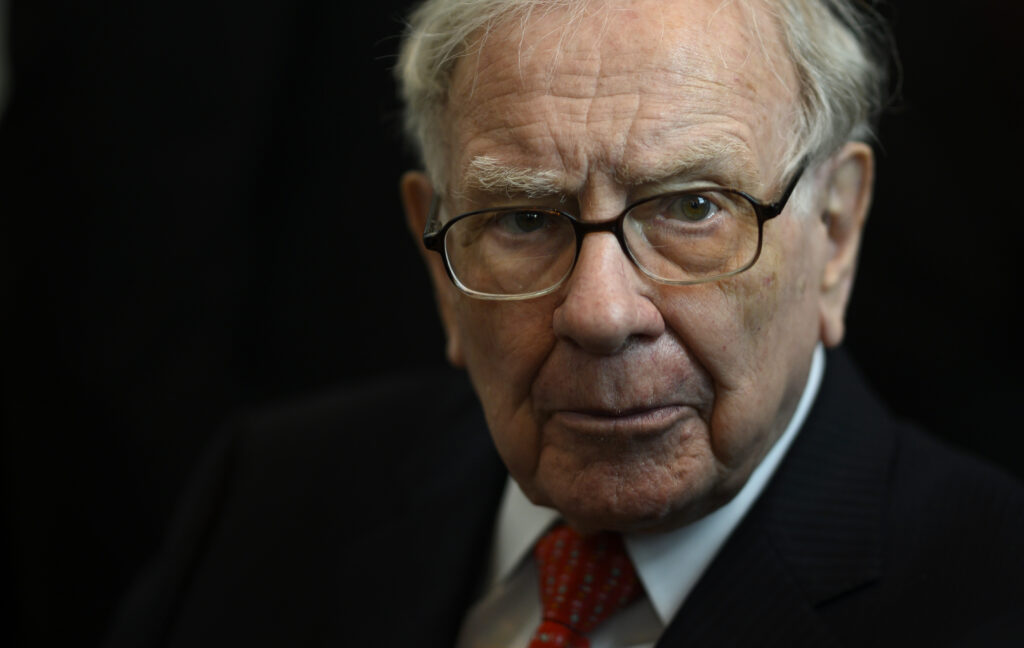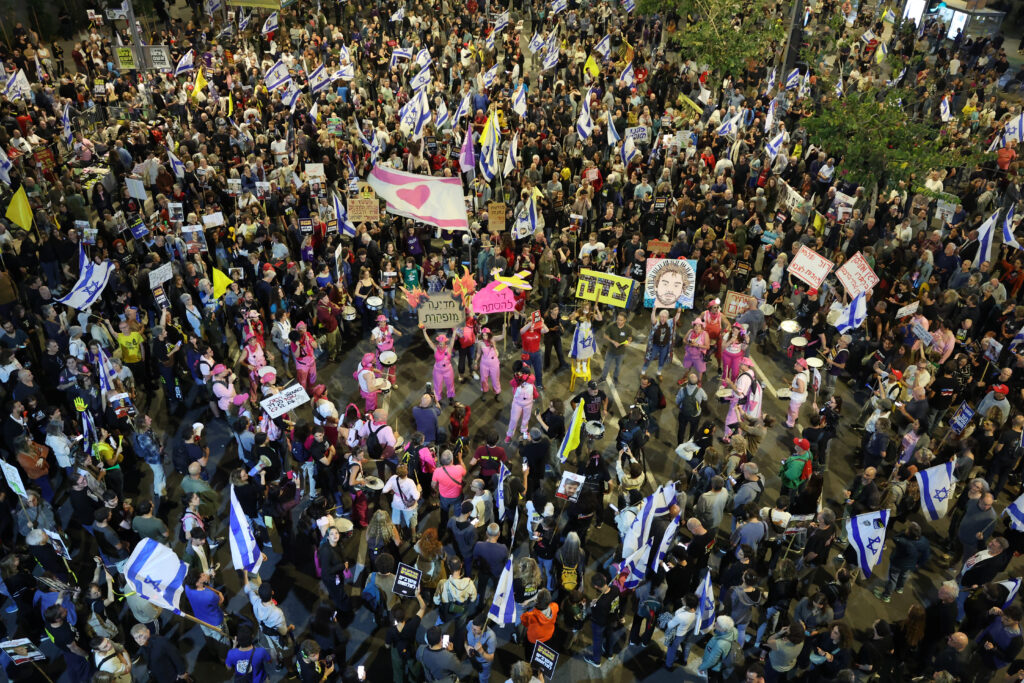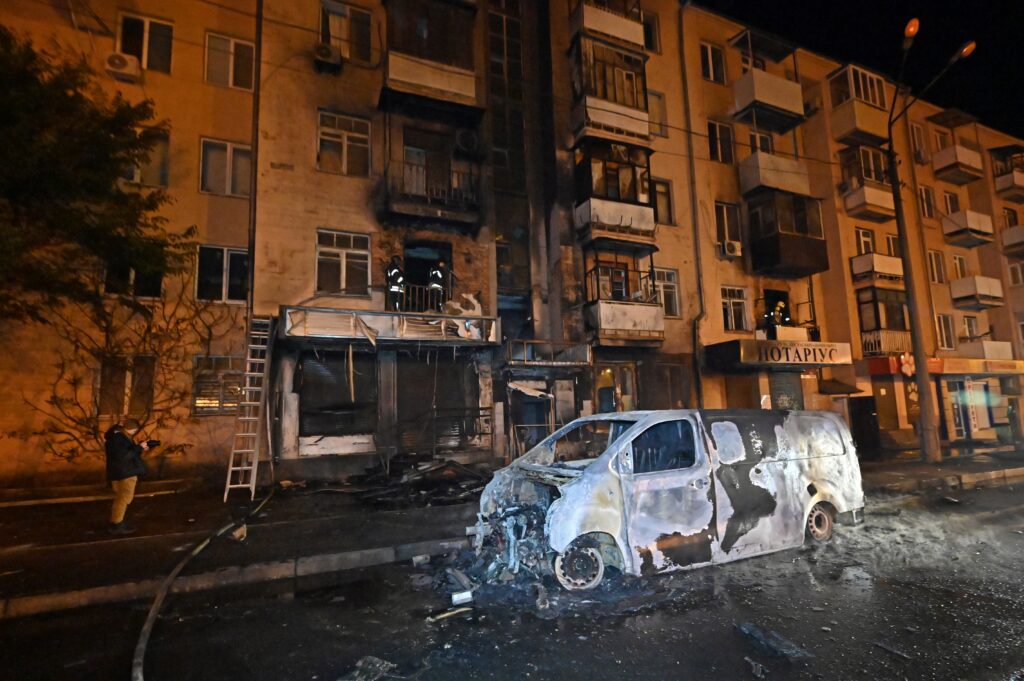Warren Buffett, investisseur de légende et milliardaire aux goûts simples
Gourou du capitalisme moderne au flair aussi légendaire que la sobriété de son train de vie, l’investisseur américain Warren Buffett s’est constitué au fil des décennies la cinquième fortune mondiale grâce à un empire hétéroclite dont il va céder les rênes en fin d’année.Son groupe, Berkshire Hathaway, est devenu la huitième capitalisation boursière au monde, dépassant les mille milliards de dollars à Wall Street, une première pour un groupe américain hors secteur de la tech. Ce conglomérat possède des dizaines d’entreprises (des piles Duracell à l’assureur américain Geico) et des actions dans des sociétés soigneusement sélectionnées, de Coca-Cola à Bank of America, en passant par Chevron ou American Express.Toute sa vie, Warren Buffett, toujours bon pied bon oeil à 94 ans, a préféré investir sur le long terme dans des entreprises stables dont il a épluché les comptes. Une stratégie qui a valu à sa société, depuis qu’il en a pris le contrôle en 1965, un rendement annuel presque deux fois plus important que celui de l’indice boursier S&P 500.Pas d’excentricité non plus dans le quotidien de “l’Oracle d’Omaha”, qui affiche selon Forbes une fortune de 168 milliards de dollars – l’une des seules qui a continué d’augmenter depuis le retour au pouvoir de Donald Trump en janvier.Client régulier de McDonald’s, la légende fait de lui un buveur de Coca-Cola invétéré, qui habite la même maison depuis 1958, achetée 31.500 dollars, dans sa ville natale d’Omaha (Nebraska), dans le centre du pays.Ses secondes noces sont scellées avec deux anneaux soldés dans une bijouterie de son groupe. Ses seuls loisirs connus: bridge, ukulélé et golf. Il reconnaît toutefois que posséder un jet privé lui facilite la vie.- Grand philanthrope -Pas provocateur comme Elon Musk, il n’ambitionne pas de conquérir l’espace comme Jeff Bezos ou de changer le monde comme Mark Zuckerberg.La discrétion de ce démocrate revendiqué, qui se plaint de ne pas payer assez d’impôts, ne l’empêche pas de distiller des avis tranchés sur l’économie et quelques piques sur le bitcoin, l’intelligence artificielle ou la guerre commerciale lancée par Donald Trump.Chaque année, des milliers de petits investisseurs se pressent pour l’écouter à l’assemblée générale de Berkshire, désignée comme le “Woodstock” des capitalistes.Avec son grand ami, le fondateur de Microsoft Bill Gates, il lance en 2010 “The Giving Pledge”, un club de milliardaires prêts à donner au moins la moitié de leur fortune à des associations caritatives.Au cours de sa vie, il a fait don de quelque 60 milliards de dollars – un record – dont 43 milliards à la Fondation Bill et Melinda Gates. En 2024, il a annoncé que sa fortune serait léguée à la fondation Susan Thompson Buffett, du nom de sa défunte première femme, et aux trois fondations dirigées par ses enfants.Né le 30 août 1930 dans une famille de classe moyenne, Warren Buffett se lance sur les marchés à 11 ans. Il a 13 ans quand il doit remplir pour la première fois une feuille d’impôts après ses premiers gains en bourse.Il envisage d’abandonner ses études, mais face au veto de son père, un courtier devenu parlementaire, il entre à l’école de commerce de Wharton en Pennsylvanie puis rejoint l’université du Nebraska.Recalé par Harvard, il intègre l’université Columbia à New York.Il commence sa carrière à Wall Street mais fonde dès 1956 sa société d’investissement, Buffett Partnership, fusionnée en 1965 avec le groupe textile Berkshire Hathaway. Avec son acolyte Charlie Munger, décédé en 2023 à 99 ans, il transforme Berkshire en conglomérat gigantesque.- Vieille économie -Ce père remarié de trois enfants, avide lecteur de la presse financière et généraliste, s’est évertué à dénicher les entreprises et valeurs sous-évaluées à ses yeux et à attendre qu’elles se bonifient.Cela ne l’empêche pas de nouer des accords très rémunérateurs, comme quand il vient renflouer Goldman Sachs en 2008 ou Bank of America en 2011.Ses investissements sont plutôt dans la vieille économie américaine. Apple est l’une des rares valeurs technologiques à trouver grâce à ses yeux. Après avoir massivement investi depuis 2016, Berkshire avait liquidé à l’été 2024 la moitié de ses actions pour 50 milliards de dollars.Sous ses airs de gentilhomme se cache un homme d’affaires impitoyable. Cheveux blancs, grosses lunettes, souvent en costume classique tranché par une cravate de couleur, il peut encore disserter longuement sans montrer aucun signe de fatigue.A l’AG 2024 du groupe, il reconnaissait pour la première fois son caractère mortel, lançant aux actionnaires: “J’espère bien que vous serez là l’année prochaine… et moi aussi!”Son successeur désigné, Greb Abel, lui succédera à la tête du groupe en fin d’année.
